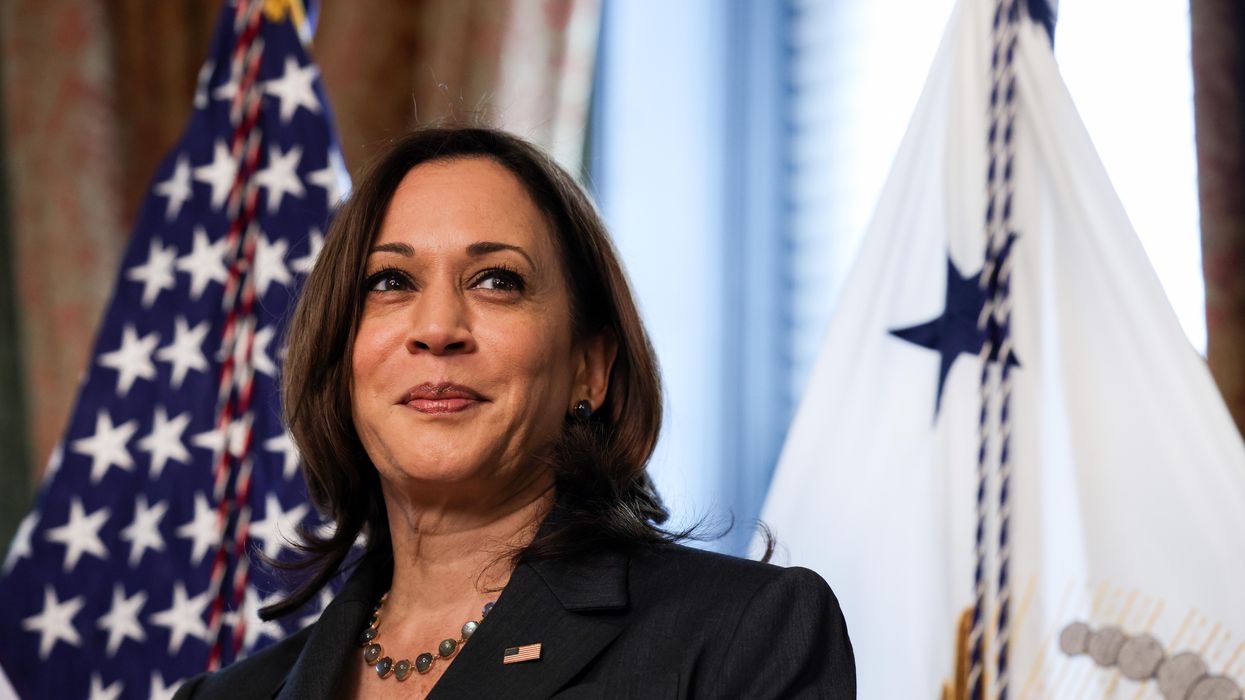Vice President Kamala Harris has been assigned a Herculean task: Protect the right to vote from an onslaught of GOP-backed restrictions.
States have already enacted a record number of voting restrictions this year, and more are sure to come. Dozens of such measures, largely pushed by Republicans, continue to advance in statehouses across the country.
Voting rights advocates say the way to protect states from these new voting barriers is to pass significant legislation at the federal level, such as the For the People Act or the John Lewis Voting Rights Advancement Act. But as long the filibuster rule remains intact, these bills are essentially dead on arrival in the Senate.
After being tapped to take on voting rights, Harris said in a statement that she will work with Congress to advance the two major reform bills.
"President Joe Biden asked me to help lead our Administration's effort to protect the fundamental right to vote for all Americans," Harris said. "In the days and weeks ahead, I will engage the American people, and I will work with voting rights organizations, community organizations, and the private sector to help strengthen and uplift efforts on voting rights nationwide."
The House version of the For the People Act was passed by Democrats in March and Senate Majority Leader Chuck Schumer announced last week that he would put the sweeping democracy reform legislation up for a vote at the end of June. But Republicans are planning to filibuster the bill, meaning 60 votes would be required to end debate and pass the bill. In the 50-50 Senate, where every Democrat except Joe Manchin of West Virginia has cosponsored the legislation, that's a near impossibility.
With Harris now at the helm of the national voting rights effort and pressure mounting from state legislatures, the call from reform advocates to end the Senate filibuster grows louder every day.
Eliminating the filibuster would lower the voting threshold to a simple majority and give the For the People Act better odds of passing along party lines, with Harris as the tie-breaking vote. Even that may not be possible because Manchin and Arizona Democrat Kyrsten Sinema have said they oppose scrapping the filibuster and Manchin wants any reform legislation to be bipartisan.
Recent events at the Capitol and across the country have turned up the heat on Democrats to toss out the filibuster. Last week, a bill supporting an independent investigation into the Jan. 6 insurrection failed to pass in the Senate, despite garnering bipartisan support. And over the weekend, Democratic state lawmakers in Texas protested a vote on a restrictive election measure, but the threat of it passing in a special session remains.
A coalition of more than 120 self-styled "scholars of democracy" penned a letter Tuesday urging immediate federal action to protect American democracy from the litany of GOP-backed restrictive voting bills. The signatories include political science and government professors from universities such as Stanford, Harvard and Cornell.
"We have watched with deep concern as Republican-led state legislatures across the country have in recent months proposed or implemented what we consider radical changes to core electoral procedures in response to unproven and intentionally destructive allegations of a stolen election," the scholars wrote. "Collectively, these initiatives are transforming several states into political systems that no longer meet the minimum conditions for free and fair elections."
The scholars implore Congress to do "whatever is necessary — including suspending the filibuster — in order to pass national voting and election administration standards that both guarantee the vote to all Americans equally, and prevent state legislatures from manipulating the rules in order to manufacture the result they want."




















Why does the Trump family always get a pass?